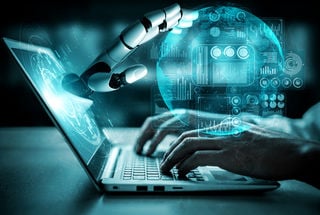The Art of Delegation: Connecting Andy Warhol's (Human) Assistants to ChatGPT
Can ChatGPT Replace Human-Created Hotel Marketing Content?
Digital Marketing in Hospitality — Viewpoint by Max Starkov
Can ChatGPT Replace Human-Created Hotel Marketing Content?
Short answer: Yes.
Long answer: Faced with the threat of human obsolescence in the creative sector, I believe the considerations I have previously expressed regarding the future of hospitality also apply to content creation. In an article titled "The Hotels of the Future: Anthropocentric, Technocentric, and Hybrid," I discussed the possibility that, in the near future, three types of hotels might coexist, differentiated not by stars or reputation but by the percentage of biological staff employed. This perspective offers an intriguing parallel with the content creation sector, where I believe two likely scenarios will emerge: on one hand, content produced entirely by humans could become a luxury ("Human-as-Luxury"), sought after for its authenticity and intrinsic value, similarly to the contemporary appreciation for traditional craftsmanship. On the other hand, the figure of the content "creator-as-director" emerges, who utilizes artificial intelligence models to execute content, thereby redesigning the human role from creator to project manager. This discussion is more easily understandable, I believe, by looking at the world of art (which is the purest and least vile form of content creation):
This evolution raises the fundamental (yet unanswered) question regarding the very definition of art: does its essence lie in the original creative impulse, in the act of conception, or in the material realization of the work? The question of whether an idea can be considered art independently of its materialization introduces a critical distinction between conception and production, suggesting that art can be understood as the expression of a concept, regardless of its, vulgar, physical execution. In this sense, I favor a conception of art that primarily values the creative idea, relegating material realization to the role of crude craftsmanship.
From this perspective, even this viewpoing would ultimately be just labor, since its intrinsic value would be exhausted with the very act of thinking it. In other words, my friend Max Starkov could have just imagined this viewpoint and gone back to sleep after having the idea, without spending half an hour writing it, and little (or nothing) would have really changed. It's a perhaps nihilistic thought, but one that finds a historical-artistic parallel in the work of Andy Warhol, who, although he never completely delegated the production of his works, regularly relied on the assistance of friends and collaborators for various aspects of the creative process, from printing to cutting, from titling to even the conception of the works themselves.
This approach lays the groundwork for broader reflection on the role of the content creator in the era of GenAI, where the use of tools like DALL·E or Midjourney does not fundamentally differ from delegating logistical and technical components to third parties like Warhol, thus highlighting a continuity (albeit disruptive) between traditional and contemporary content creation practices.
In conclusion, the transition to a model in which artificial intelligence plays a central role in content production would not represent a break from the past but rather a natural evolution that reflects and amplifies historical dynamics, redefining the boundaries between creation and production in the realm of human expression.

 by
by 

